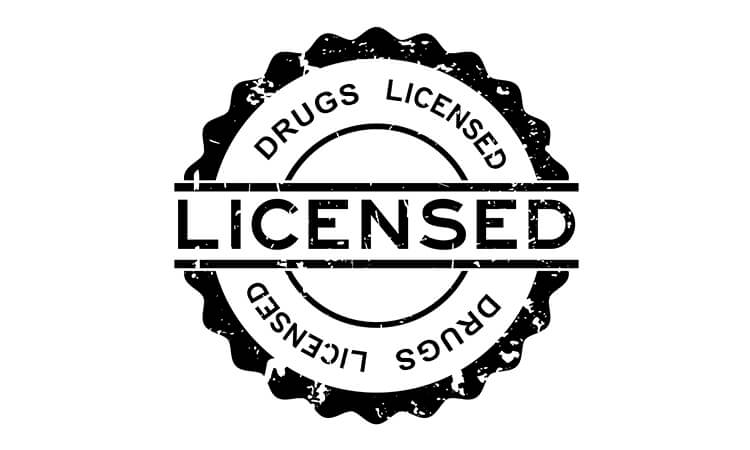
Starting a business in pharmaceuticals—whether a retail pharmacy, wholesale drug distribution, manufacturing unit, or online pharmacy—requires obtaining a Drug License. In India, drug licenses are issued under the Drugs and Cosmetics Act, 1940, and regulated by both the Central and State Drug Control Departments. This guide explains what a drug license is, eligibility criteria, required documents, and the step-by-step application process.
What is a Drug License?
Table of Contents
A Drug License is an official authorization issued by the government allowing individuals or entities to sell, manufacture, stock, or distribute drugs and pharmaceuticals.
The purpose of the license is to:
- Ensure the safety, quality, and efficacy of drugs.
- Prevent misuse, illegal sale, and substandard manufacturing.
- Promote compliance with the Drugs and Cosmetics Act.
Types of Drug Licenses:
- Retail Drug License (RDL): For pharmacies and medical stores to sell medicines directly to consumers.
- Wholesale Drug License (WDL): For businesses involved in the wholesale trading of medicines.
- Manufacturing Drug License: For companies manufacturing allopathic, homeopathic, ayurvedic, or cosmetic products.
- Import or Export License: Required to import or export pharmaceutical products.
- Online Pharmacy License: For e-pharmacies operating websites/apps selling medicines digitally.
Eligibility Criteria
Eligibility may vary by state, but the common requirements include:
Premises Requirements:
- Minimum area of 10 sq. meters for a retail or wholesale license.
- 15 sq. meters if applying for both retail and wholesale.
- Adequate storage facilities like a refrigerator, air-conditioning, and proper ventilation.
Qualified Staff:
For Retail License:
-
A registered pharmacist with a valid qualification (Diploma/B.Pharm).
For Wholesale License:
-
A competent person with:
-
A degree in pharmacy, OR
-
One year of experience in drug sales, OR
-
SSC (10th pass) with 4 years of experience in a pharmaceutical business.
-
Business Registration
-
A proprietorship, partnership firm, company, or LLP must be legally registered.
Compliance Requirements
-
Must follow norms prescribed under the Drugs and Cosmetics Act, 1940 and state-specific rules.
Documents Required:
The following documents are typically required for applying for a license:
Premises Documents
- Rent agreement/ownership proof
- Blueprint of shop/warehouse layout
- Electricity and water bills
Business Documents
- Registration certificate of the business (GST, MSME, Incorporation Certificate)
- PAN and Aadhaar of the proprietor/partners/directors
Pharmacist/Competent Person Documents
- Qualification certificates (Diploma/B.Pharm)
- Registration certificate from State Pharmacy Council
- Appointment letter
- Experience certificate (for wholesale applicants)
Additional Documents
- Affidavit for non-conviction
- Refrigerator purchase invoice
- Passport-sized photographs
- Self-declaration form
- NOC from the local municipality (in some states)
How to Apply for a Drug License?
Although the process may slightly vary by state, the general steps remain the same:
1. Register on the State Drug Control Department Portal:
Each state has an online portal for license applications.
For example:
- Maharashtra: FDA online portal
- Delhi: Delhi Drug Control Department portal
- Karnataka: Seva Sindhu portal, etc.
Create your profile using business details and contact information.
2. Choose the Type of Drug License:
Select whether you are applying for:
- Retail or wholesale license
- Combined license
- Manufacturing license
- Other categories as applicable
3. Fill Out the Online Application Form:
Enter required information such as:
- Business name
- Premises details
- Pharmacist/competent person details
- Storage facilities
4. Upload the Required Documents:
Scan and upload documents in the specified format and size.
5. Pay the Government Fee:
Fees vary by state and type of license but generally range from ₹3,000 to ₹20,000+.
6. Inspection by Drug Inspector:
After submission:
- A drug inspector visits the premises.
- They verify infrastructure, storage conditions, pharmacy staff, and documentation.
- Any discrepancies must be corrected.
7. Approval and Issuance of License:
If the application meets all requirements:
- The license is approved and issued digitally.
- You can download it from the portal.
Conclusion:
Obtaining a Drug License is a mandatory requirement for starting any pharmaceutical-related business in India. By ensuring that the premises, documentation, and qualifications meet the necessary standards, applicants can smoothly complete the process. Proper compliance helps maintain public health and ensures the distribution of safe and quality medicines.
FAQ:
Q. How long is a drug license valid?
A. Most licenses are valid indefinitely but require periodic renewal or compliance updates depending on state regulations.
Q. Can one drug license be used for multiple locations?
A. No, each address requires a separate license.
Q. Is a pharmacist mandatory for a wholesale license?
A. Not always. A competent person with sufficient experience may be allowed, depending on state rules.
Q. What happens if a drug license expires?
A. Operating without a valid license is illegal and may lead to penalties, closure, or prosecution.
Q. Can a drug license be transferred?
A. Yes, licenses can be transferred in cases of ownership change, but approval from the licensing authority is required.
Q. How long does it take to get a drug license?
A. Generally, 30–60 days, depending on inspection schedules and state workload.